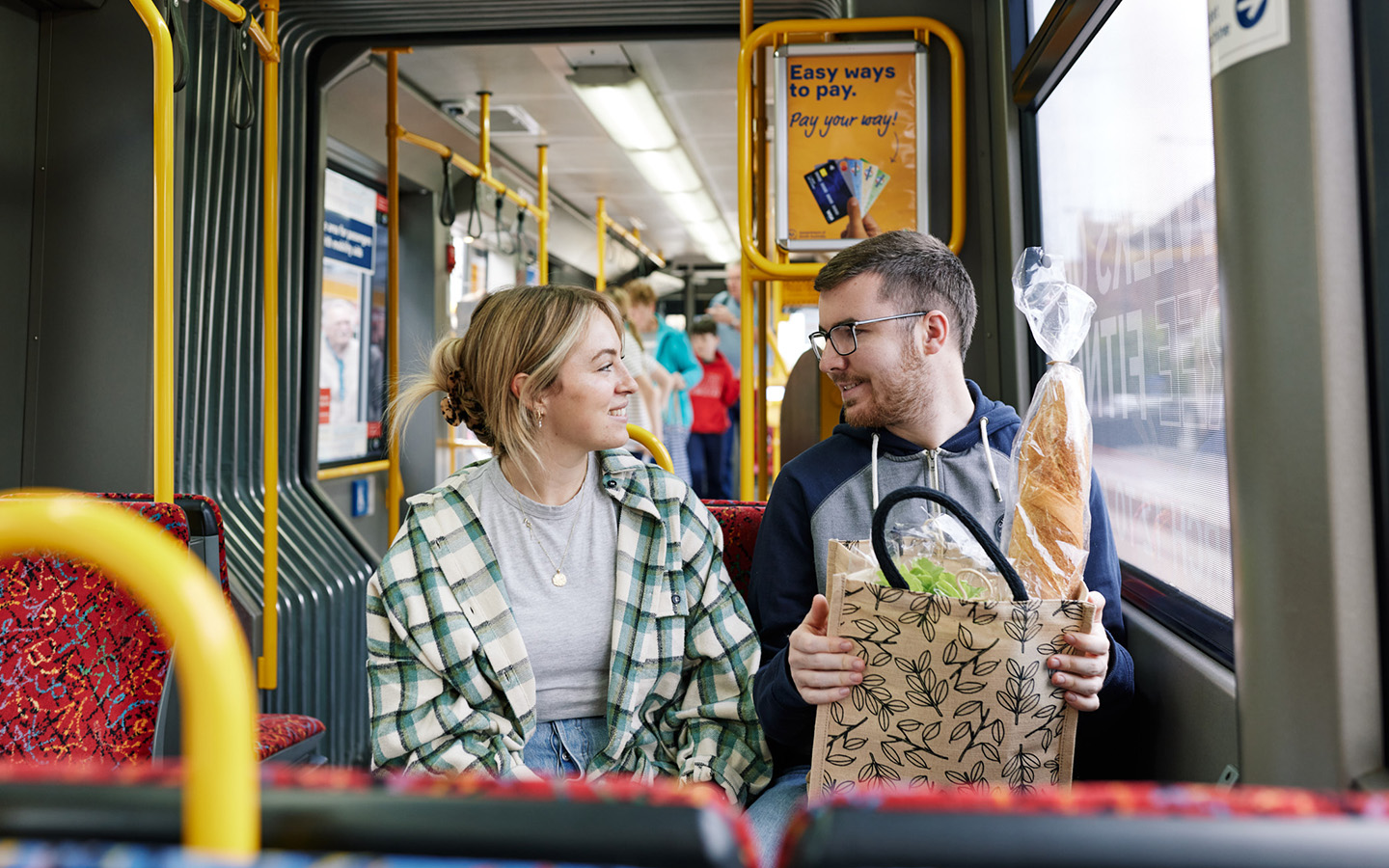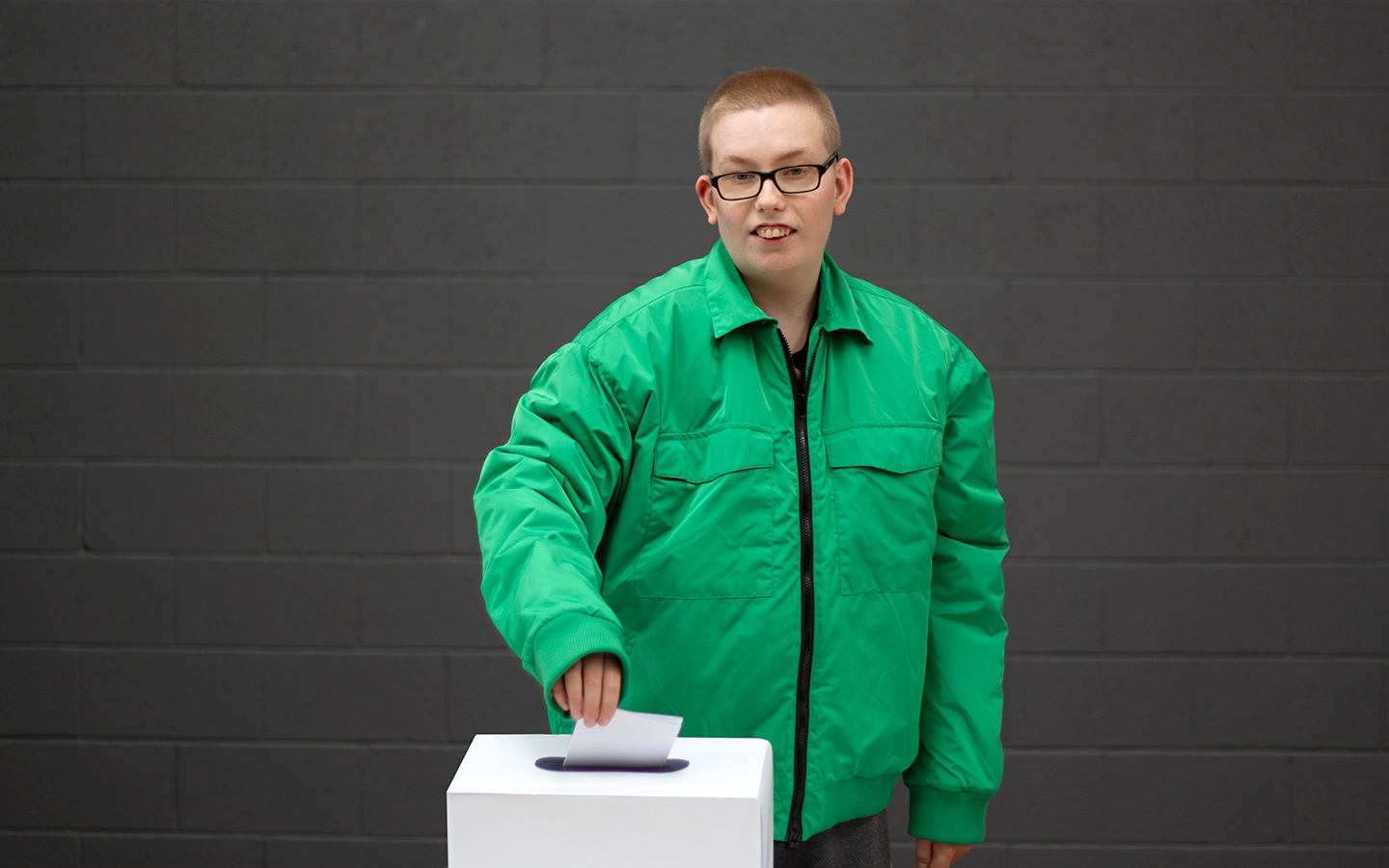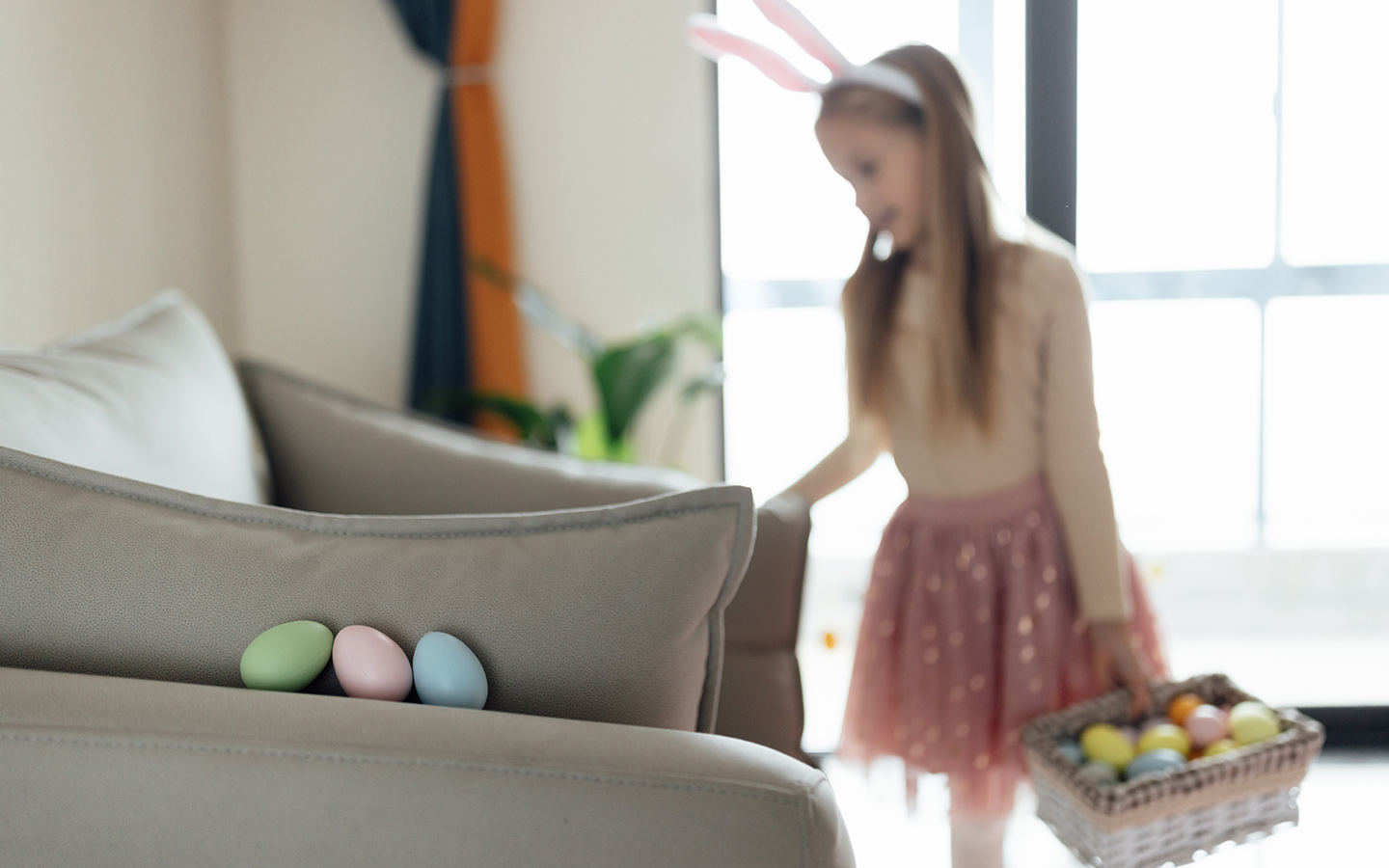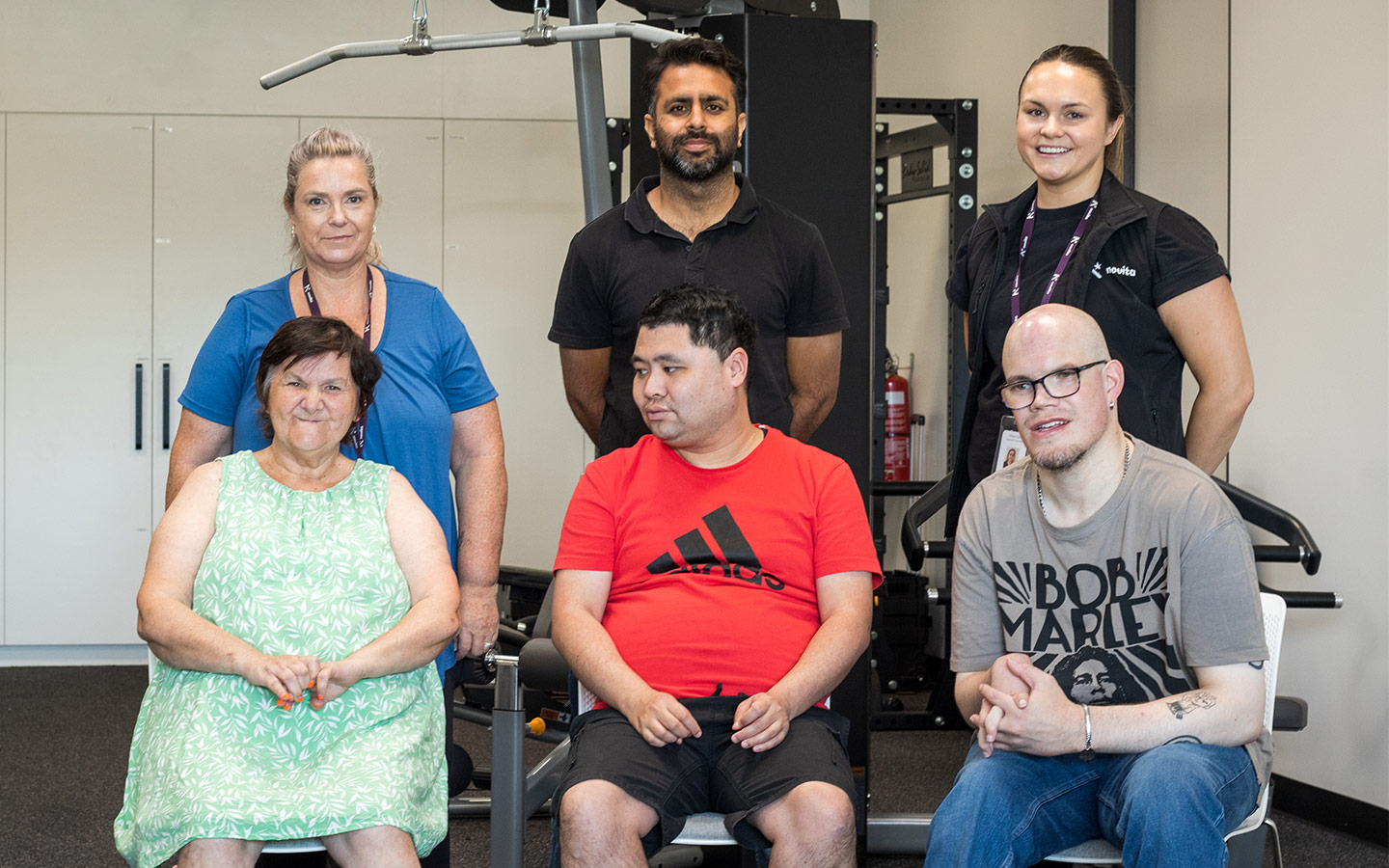Helpful Information
Support your autistic teen to develop life skills and prepare them for adulthood – Step Up with Novita
access_time15min read

Your teenager is growing up – they’re getting closer and closer to finishing high school and taking their first steps into the world as an adult.
Your concern? They’re still struggling to manage their everyday tasks and need support to develop their independence and life skills.
How can you support them to learn and develop these skills, while still being able to successfully navigate life with autism?
We’ve put together our top tips for teaching them how to take on the world, and develop important life skills, one routine at a time. Read on for some easy-to-apply strategies to integrate into your everyday life, as well as options for additional support, like our Step Up Life Skills program.
1. Tap into your child’s strengths
Focusing on what they’re doing well at and succeeding with will build their confidence and competence. If your autistic teenager enjoys preparing food for example, empower your child to use those strengths often, perhaps by allowing to assist with cooking dinner throughout the week.
You may also be able to introduce new skills through your teen’s strengths and areas of interest with a bit of creative thinking. Using the cooking example above, you may be able to teach them how to manage a budget through shopping a recipe list. This would just take a few simple steps:
- Review a chosen recipe with your teenager, and identify items on the list that you already have in the house.
- Set an achievable budget that may slightly challenge them.
- Get your teenager to make a list of all the items they need to cook the chosen recipe.
- Set clear expectations with your child: let them know what they will need to do once in the store, where they will need to go amongst all the aisles, and that you will be there to support them if needed.
- It’s time to go shopping! Bring your son or daughter to the supermarket, and let them pick all the items they need. Many supermarkets now offer “sensory hours” or “quiet hours” for customers who have sensory needs, which may be a good time to take your teenager to the shops.
- Before going through the checkout, double-check what your teen has picked out against the list and your budget. Gently give them a chance to correct anything they may need to, in case they are over budget or have missed an ingredient.
Connecting new skills to their interests may also support your autistic child’s learning and provide further motivation. For example, if your child enjoys gaming, you might be able to use a game such as “Minecraft”, or another one of their favourites, to connect with them, and use the game to create engaging demonstrations or motivate them to learn new skills.
2. Be supportive and celebrate the wins – no matter how big or small.
Everyone has their own version of success – and that’s no different for your autistic teenager. Celebrating their successes along the way will keep them motivated, and reinforce the new skills they will have learned.
Success can start with seemingly small things like remembering to shower each day and following a personal hygiene routine, or being able to catch the bus home from school themselves. From there, it can quickly grow to include the big things like mastering their self-direction and executive function and developing the healthy habits that will help them take on the world.
Tracking your son or daughter’s progress by following their achievements and progress via a shared diary or common whiteboard can encourage them to keep working towards their next goal. There will be lots of little victories and milestones along their journey, and by providing a visual indicator of how far they have come already, you can keep their motivation high as they learn and practice.
As your teen reaches their next goal, plan appropriate celebrations (like cooking them their favourite dinner, or something else of their choosing) to provide positive reinforcement and keep motivation high. Positive reinforcement is a strong motivator and will build their confidence that they are on the right track.
3. Model the behaviours, demonstrate the skills.
Providing your teen with a role model for them to learn from can be a vital aspect of nurturing your child’s development. Where possible, children and teenagers living with autism can learn well through observation and taking in their surroundings.
Involving your teenager in more complex tasks such as budgeting or meal planning can develop their skills in a safe, pressure free environment, and provide them with the best mentor they could have – you! You can show them how you would handle the task at hand, then walk them through the skill, so they can get some hands-on practice.
Video-modelling can also be an excellent method for teaching life skills to your autistic teen. Video-modelling is a technique where a new skill is taught with a visual model of the expected behaviour. It can effectively teach a variety of skills, such as communication skills, or transport training. Video modelling can be an engaging way to introduce new skills to your autistic teenager, and can support them to practice these skills through imitation. You may choose to film these yourself, or you may be able to find relevant clips on YouTube, such as this video demonstrating how to wash the dishes:
Whether you’re showing them how to manage their finances and their bank account, manage their feelings, or to maintain a positive mindset, being the example, and giving clear, easily followable instructions can give your son or daughter the best possible role model to take on the world.
4. Break the tasks down into easily achievable blocks
It can be overwhelming to try and tackle a task in one big block, especially if you live with a disability. Teaching techniques such as “chunking” and “teaching backwards” can assist in making your teenager’s goals appear more achievable.
“Chunking” is the process of breaking a task down into smaller blocks – and it can reduce a job from a big, daunting undertaking to something much more achievable, while providing little hits of success along the way. For example, say you were teaching your son or daughter how to form a morning hygiene routine. You may start by
- Teaching them to start their day by brushing their teeth (which you may be able to break down further into the individual steps if need be)
- Introducing a new skill once they have been able to maintain a routine of brushing their teeth first thing each day. Flossing would be a good example of a skill that would be good to introduce here.
- Continue to introduce new skills as your teenager shows they are ready. As they master their oral health routine, expand the routine to include other skills such as bathing, putting on deodorant, personal grooming such as shaving, and so on.
It’s an evidence-proven technique for all sorts of learning, and may prove helpful when teaching your autistic teenager those valuable life skills they will need. It can also be easily supported with visual aids such as posters, videos, or so on, if your child finds them helpful.
Breaking a task down into chunks can reduce a job from a big, daunting undertaking to something much more achievable – and provide little moments of success along the way as they complete each section.
Another useful technique is “teaching backwards” – teaching the outcome of a skill first, and working backwards from there, again providing that success to encourage them, and reinforcing what they are learning. For example, if you were teaching them how to do their laundry, you might teach them in this order:
- Putting their clothes away
- How to fold each piece of clothing
- Drying their clothes, either on a line, or using a dryer
- How to use the laundry machines
- When to stop wearing clothes, and when they are ready to be washed.
These teaching techniques allow your child to learn at their own pace while avoiding becoming overwhelmed, while letting them know what lies ahead of them on their skill-building journey.
5. Go slow, go steady – there’s no rush!
There’s no rush to master everything immediately. Let your teenager learn at the pace that suits them best. Overloading them with too much information before they’re ready may cause more harm than good.
When teaching a skill, such as brushing their teeth, or managing their bank account, teach each step one at a time and allow your child to learn at their own pace. Allow extra time for learning new skills, and encourage repetition and practice if they feel that they need it. Self-reflection may also aid their development – regularly talk to them about how they are going, and allow them to identify skills themselves that they want to learn or need further practice in.
By teaching at a manageable pace – and this will be different for everyone – you’ll avoid potentially overwhelming your child, while building their confidence as they succeed at each different step. Don’t worry – they’ll let you know when they’re ready for more.
6. Tap into the wide range of resources at your fingertips
You’re not alone on this journey! No matter the support you or your teen need, you’ll be able to find it. This can be found in online resources, to support groups in your local community, or in programs like our Step Up Life Skills course.
Here’s just a few trusted online resources:
- https://raisingchildren.net.au/autism/school-play-work/play-learning/everyday-skills-for-children-with-asd
- https://tacanow.org/family-resources/life-skills/
- https://www.allkindsoftherapy.com/life-skills-for-autism-5-ways-to-foster-independence-in-your-teenager
- https://www.disabilitysupportguide.com.au/information/article/what-essential-life-skills-do-teens-with-disabilities-need-to-know
- https://udservices.org/basic-life-skills-adults-disabilities/
- https://lifeskillsadvocate.com/blog/11-evidence-based-ways-to-teach-daily-living-skills/
- https://raisingchildren.net.au/disability/school-play-work/learning-behaviour/teaching-skills-to-children-with-disability
Don’t just stop with these resources, either! There’s a wide world of information and support out there, just at the click of a button.
7. Participate in Novita’s Step Up Life Skills program
Our Step Up Life Skills program here at Novita has a track record in supporting our clients and participants to develop their life skills, make lasting friendships with their peers, and build their independence.
We have found that a practical and person-centred approach to skill building works best, alongside a range of activities, experiences, guest speakers and workshops through each module.
Everything that we do in Step Up Life Skills is focused on teaching and supporting your children to develop skills important to them, and develop their independence. We’re really proud to see the progress of our Step Up participants, as they’ve grown in confidence and gone from strength to strength.
Thomas was a recent Step Up participant, who grew from a disengaged and shy teenager who would cover his face and never leave his room, to someone who is independent, regularly engaged with his community, and takes pride and confidence from his appearance. With this newfound confidence nurtured throughout his participation in Step Up, Thomas is now able to take on the world, with a smile on his face.
Is your teenager interested in a bit of extra support as they leave high school? Step Up Life Skills is designed for young people living with disability, who are 17 to 24 years of age and looking to increase their ability to live independently and get the most out of life. If you’d like to see your child follow in Thomas’s example, contact us at 1300 668 482, or email [email protected], and we can discuss whether Step Up Life Skills may be the best option to support them.


